UPOU FMDS and UPRI launch Basics of Resilience Course
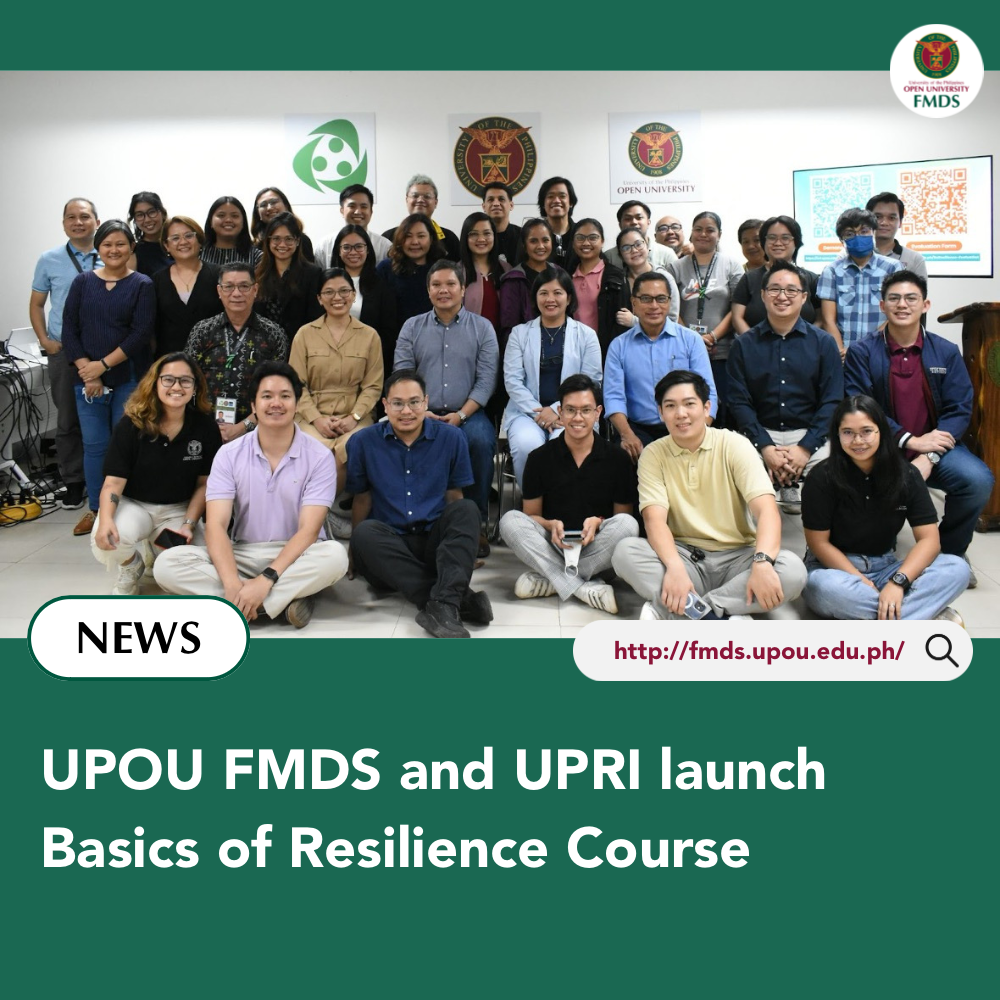

The Faculty of Management and Development Studies (FMDS) of the University of the Philippines Open University (UPOU), in collaboration with the UP Resilience Institute (UPRI), formally launched the Basics of Resilience course in a hybrid set-up on 05 December 2023 at the Training Room, UP Resilience Institute in UP Diliman, Quezon City.
The Basics of Resilience is a basic course designed to equip learners with the fundamental knowledge and skills necessary to understand and effectively implement disaster risk reduction and management (DRRM). This also encompasses the implementation of climate change adaptation and mitigation (CCAM) tools and frameworks. This course will be the foundation upon which they can continue to develop specialized competencies and expertise in disaster and climate management.
UPRI Director for Education, Asst. Prof. Ruben M. Gamala formally graced the event with his welcome greetings mentioning the opportunities that this program embraces particularly for offshore or working individuals who cannot get out of their communities and workplace. Following this, Dr. Joane V. Serrano, the Dean of FMDS, delivered opening remarks, highlighting the significance of the course in equipping individuals within the climate change adaptation (CCA) and disaster risk reduction (DRR) professions, underserved sectors, and other stakeholders. The course provide essential knowledge to enhance resilience within their communities.
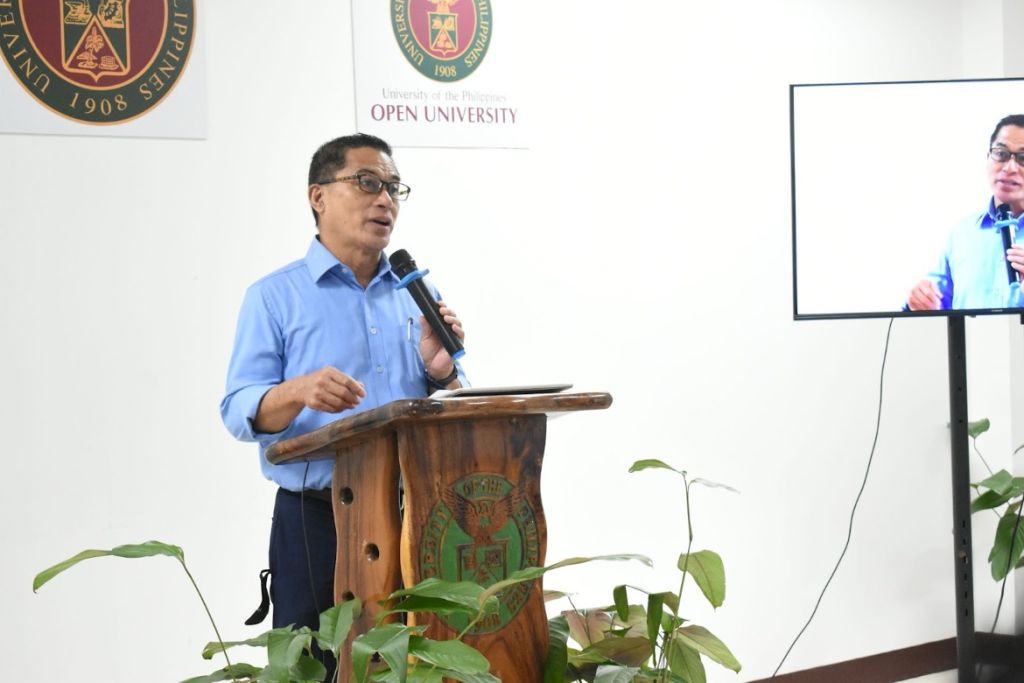

Asst. Prof. Ruben M. Gamala during his welcome greetings
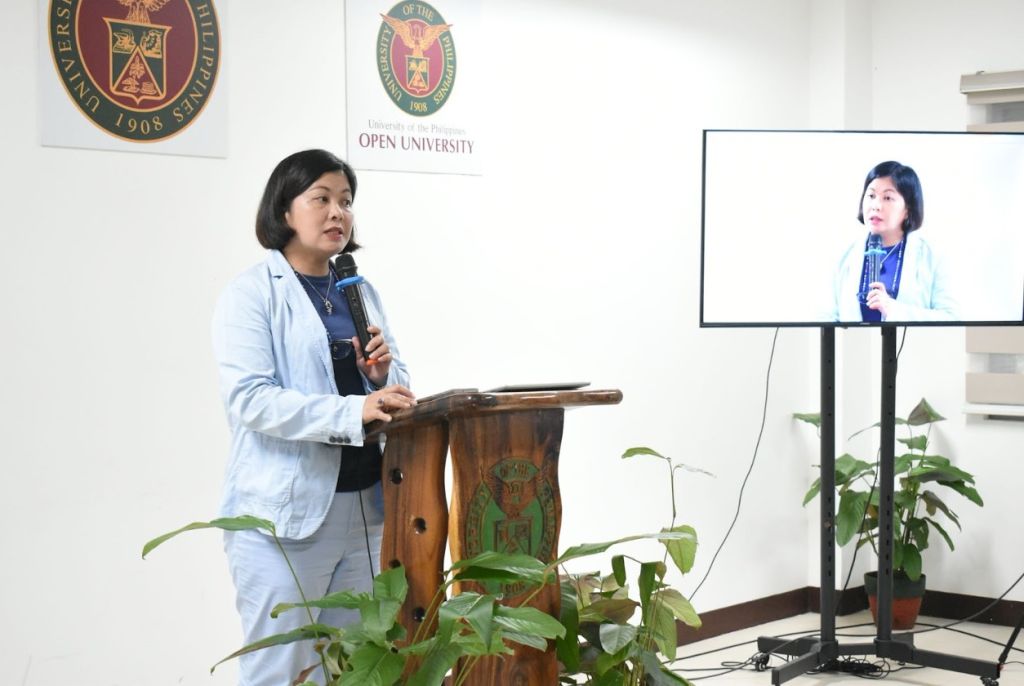

UPOU FMDS Dean Joane V. Serrano during her opening remarks
Meanwhile, Dr. Melinda Dela Peña Bandalaria, UPOU Chancellor, delivered her message virtually, highlighting the transformative nature of the micro-credentialing framework within the program. She underscored its potential to serve as a model for future initiatives not only within the University but also in other higher education institutions across the country.
Undersecretary Ariel F. Nepomuceno from the Office of Civil Defense expressed optimism regarding the online courses, emphasizing their potential to enhance the capacity of Climate Change Adaptation-Disaster Risk Reduction (CCA-DRR) professionals. He sees these courses as instrumental in involving a greater number of individuals in establishing communities with a secure, sustainable, and resilient nature.
Simultaneously, Secretary Robert E.A. Borje of the Climate Change Commission emphasized the significant progress in recognizing the pivotal role of academia in resilience building. He praised the efforts to provide more accessible education, marking a noteworthy advancement in the collective journey towards a more resilient and prepared society.
Through a 30-minute lecture, UPRI Executive Director Dr. Alfredo Mahar A. Lagmay provided an overview of the disaster context in the Philippines introducing the content of the courses. Dr. Lagmay’s discussions included introductions on the terminologies regarding CCA-DRR, the numbers of natural hazards and previous reports of disasters in the Philippines, and various strategies to address phenomena considering the country’s ranking first in the 2022 World Risk Index.
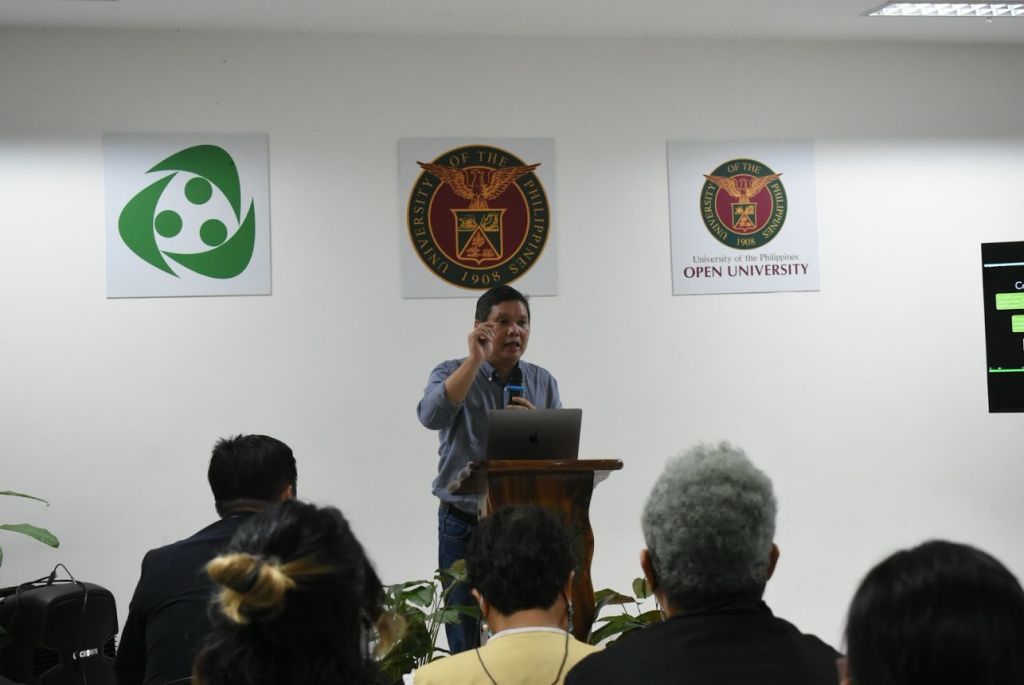

UPRI Executive Director Dr. Alfredo Mahar A. Lagmay discusses the disaster context in the Philippines
Atty. Angelo A. Jimenez, the current UP President, encouraged scholars and researchers to effectively communicate and unleash their creativity in fostering a science-oriented community. “What is required is climate justice– there has to be equity as well,” said UP President Jimenez during his talk. He added that the state universities and colleges play a crucial role in addressing the challenges of climate change through disseminating the message to communities that climate justice, or climate action, is the greatest moral imperative of this current time.
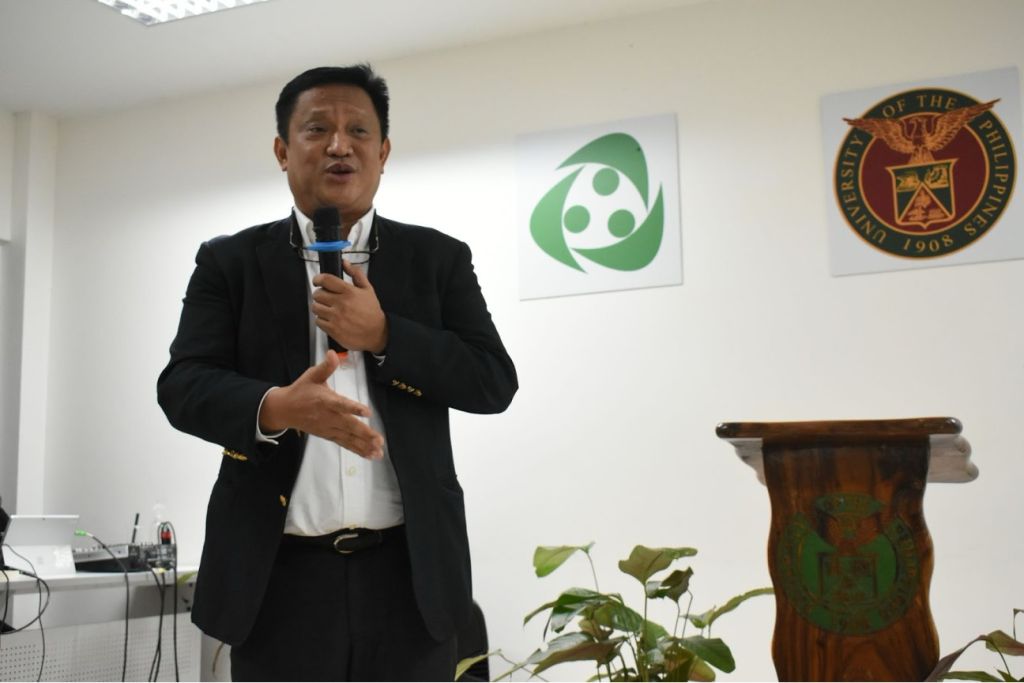

Message of UP President Angelo A. Jimenez
The launching program was formally closed by Asst. Prof. Genaro A. Cuaresma, the UPRI Director for Institution Building, acknowledging the presence and enthusiasm of speakers, various participants, and organizers in building a safer, adaptive, and disaster-resilient Filipino community towards sustainable development. Finally, he emphasized the institute’s vision of making the learnings accessible to all local government units, disaster risk reduction and management officers, and planning officers through offering micro-certificate courses related to climate change adaptation and mitigation, disaster risk reduction and management, and local government planning.
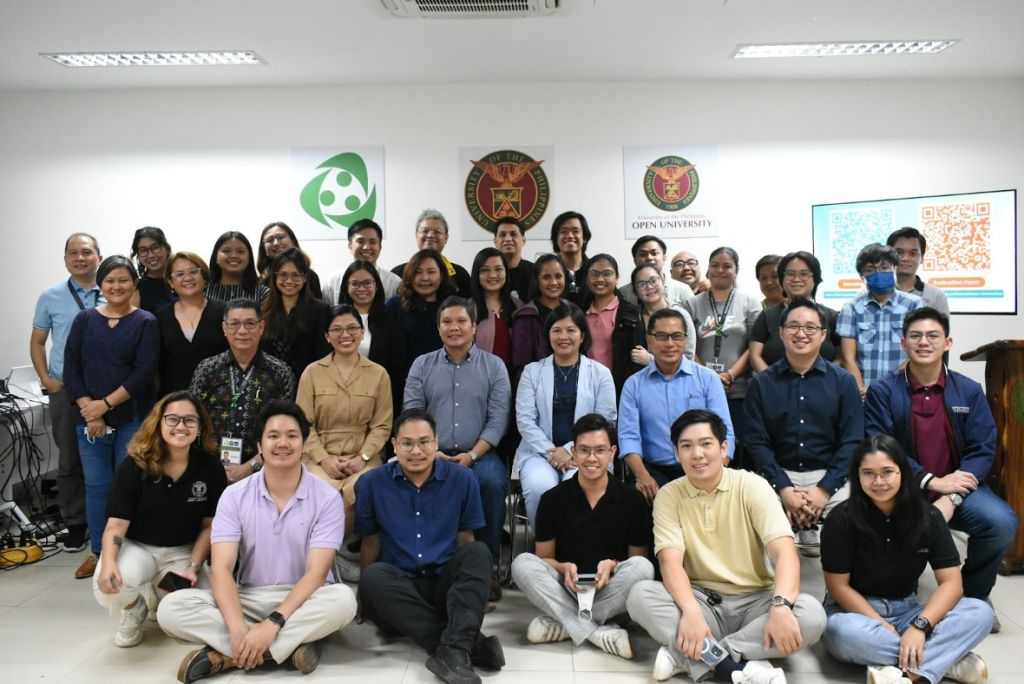

A final photo of speakers and participants as to conclude the launching program
Written by Raizza Anna Alforja & Sydney Rovin Macahiya • Edited by Larry N. Cruz

















FMDS Socials